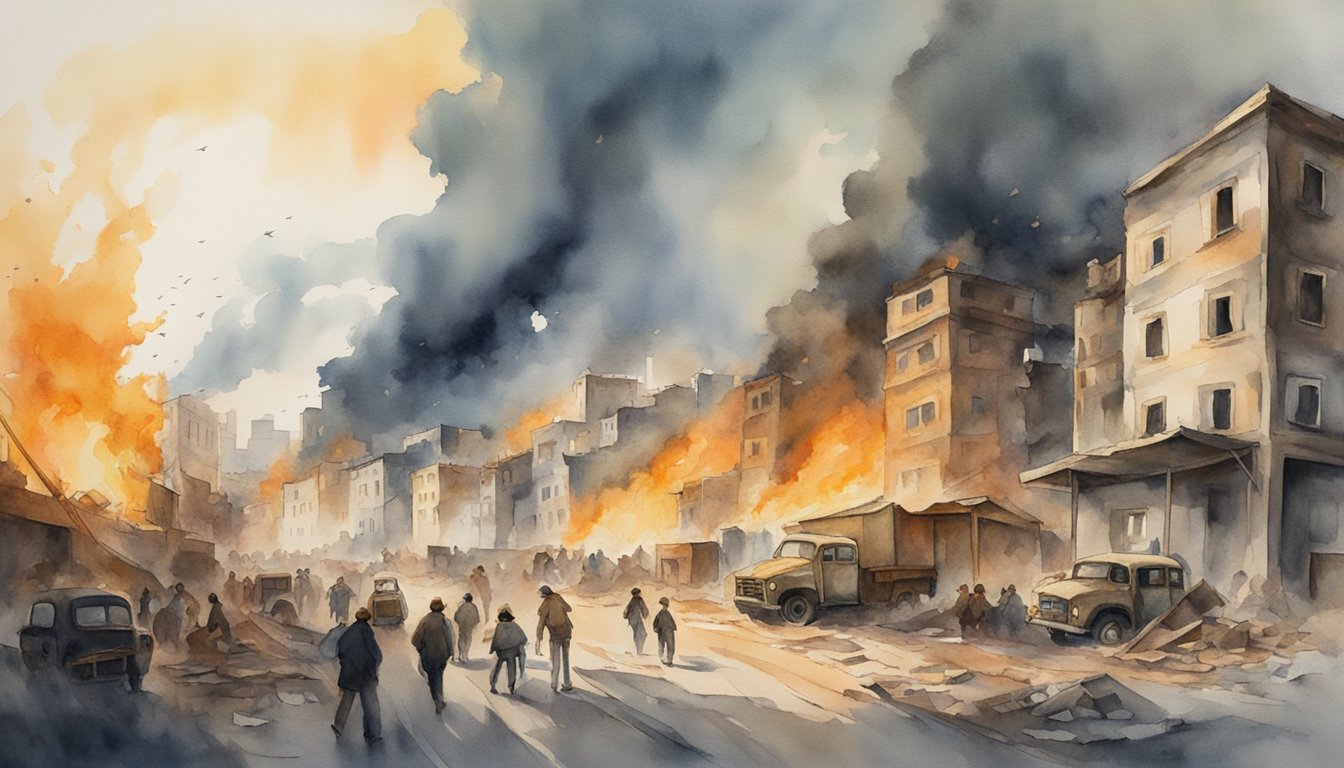Historical Context
Prelude to Operation Searchlight
In the early 1970s, East Pakistan (now Bangladesh) faced political turmoil as it sought greater autonomy from West Pakistan (present-day Pakistan). The struggle for rights intensified after the 1970 general election, when Sheikh Mujibur Rahman, leader of the Awami League, emerged victorious. However, President Yahya Khan and the West Pakistani ruling elites refused to hand over power to Rahman and his party, causing widespread anger among Bengalis in East Pakistan.
Moreover, significant cultural and economic disparities between the two regions fueled the desire for autonomy and recognition of their language. Martial law imposed by General Yahya Khan further escalated tensions.
Outbreak of the Conflict
In response to the growing Bengali nationalist movement, on March 25, 1971, the Pakistani army initiated Operation Searchlight. This military crackdown aimed to suppress the Bengali calls for self-determination and autonomy, specifically targeting nationalists, intellectuals, and the Hindu community.
Operation Searchlight marked the beginning of a genocide and sparked the Bangladesh Liberation War against Pakistani forces. Rampant human rights abuses, including ethnic cleansing, ensued as the Pakistani military attempted to exterminate politicians, students, and others advocating for a sovereign Bangladeshi state.
As the conflict attracted global attention, India stepped in and provided support to Bangladeshi freedom fighters. With the assistance of the Indian Army, the Liberation War concluded in December 1971, ultimately leading to East Pakistan’s independence as Bangladesh. The newly-formed nation received recognition from the United Nations and other international organizations.
Despite Cold War tensions playing a role in this conflict, with China supporting Pakistan, the struggles for cultural preservation, religious tolerance, and self-determination took center stage during this time, shaping the history of Bangladesh and its path towards independence.
Impact and Consequences

Humanitarian Crisis
During Operation Searchlight, a large-scale humanitarian crisis occurred in Bangladesh due to the atrocities committed by the Pakistan Army. The operation resulted in the death of between 5,000 and 100,000 Bengalis in a single night, with academics and Hindus being specifically targeted by the military forces (source).
The subsequent violence and mass killings displaced millions of people, primarily the Bengali population, who sought refuge in neighboring countries. Sexual violence was also rampant, with thousands of women being raped by Pakistani soldiers. The Bhola cyclone, which struck in November 1970, exacerbating the existing disaster and causing massive destruction and casualties.
International Response and Recognition
At the time, the international community was slow to respond to the events in Bangladesh. However, US officials like Archer Blood were vocal about the need for intervention. The USSR was one of the first countries to label the events as a “genocide”; its newspaper, Pravda, had wide coverage of the events in Bangladesh.
Eventually, the Indian military intervened to support the Bengali population in their quest for liberation. The intervention marked a turning point, resulting in the eventual unconditional surrender of the Pakistan Army.
Path to Bangladesh Liberation War
Operation Searchlight ignited the Bangladesh Liberation War, a nine-month struggle that culminated in the formation of Bangladesh. It was characterized by significant resistance from various groups, including the Mukti Bahini – a Bengali guerrilla force that played a crucial role in the liberation effort.
During this period, several massacres occurred, such as the Bihari Massacre, which involved the extermination of the Urdu-speaking Bihari minority by Bengali groups. The violence and chaos ultimately led to the formation of Bangladesh as an independent nation, but the effects of the genocide and struggles continue to reverberate in Bangladesh’s history, society, and quest for justice.

